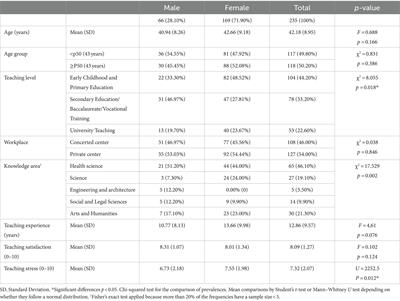ORIGINAL RESEARCH
Accepted on 14 Apr 2025
The Impact of Learner Background Variables on Academic Burnout in Online vs. Face-to-face Classes among Students of Shiraz University of Medical Sciences (SUMs) Having English Courses
doi 10.3389/fpsyg.2025.1484760
- 103 views

